Steve Rutter both played and managed in the Southern League and has gone on to coach all over the world.
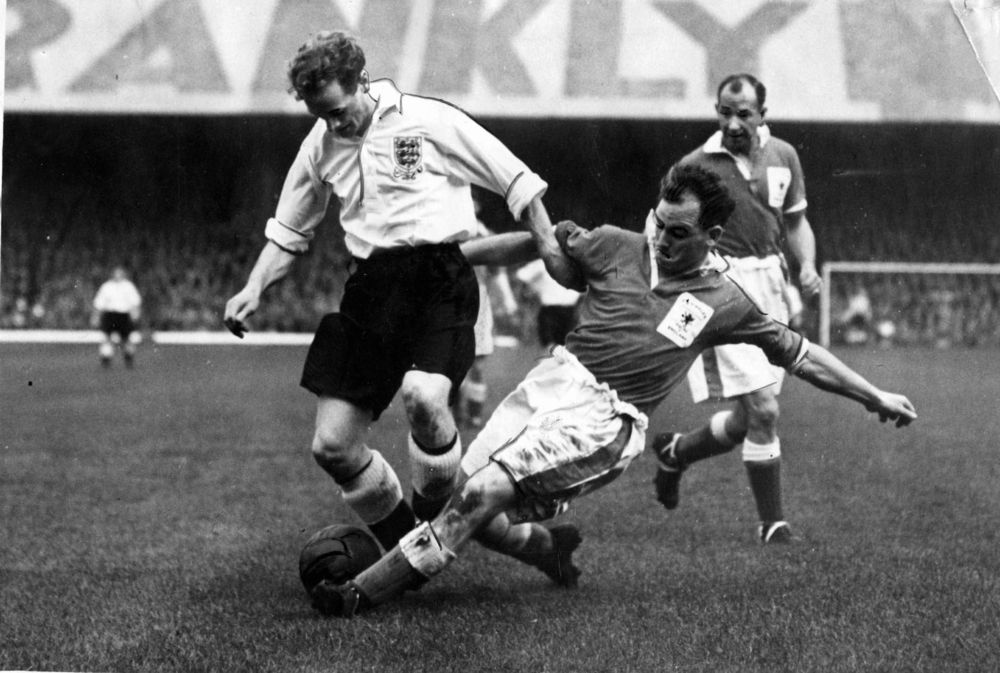
Alf Sherwood tackling England`s Tom Finney
A former `Bobbie`, the young centre-half started out as a youth on Northampton Town`s books before playing in the Southern Midland Division for Wellingborough Town.
He moved down to North London to sign for Brian Hall`s Wealdstone side – joining a squad who had won the non-League `double` of Conference and FA Trophy.
Rutter followed Hall to then-Isthmian League Premier Division Yeovil Town as a player in January 1987.
He helped the Glovers to promotion to the Conference and, in April 1991, replaced Clive Whitehead as player-manager.
Under his guidance, Yeovil went on to beat more Football League sides in the FA Cup than any other manager before him.
His time in charge was blighted by financial difficulty at the club mainly caused by the move to the new Huish Park.
An FA Cup Third Round tie against Arsenal in early 1993 is widely regarded as the saviour of the club, generating sufficient cash to keep the club afloat.
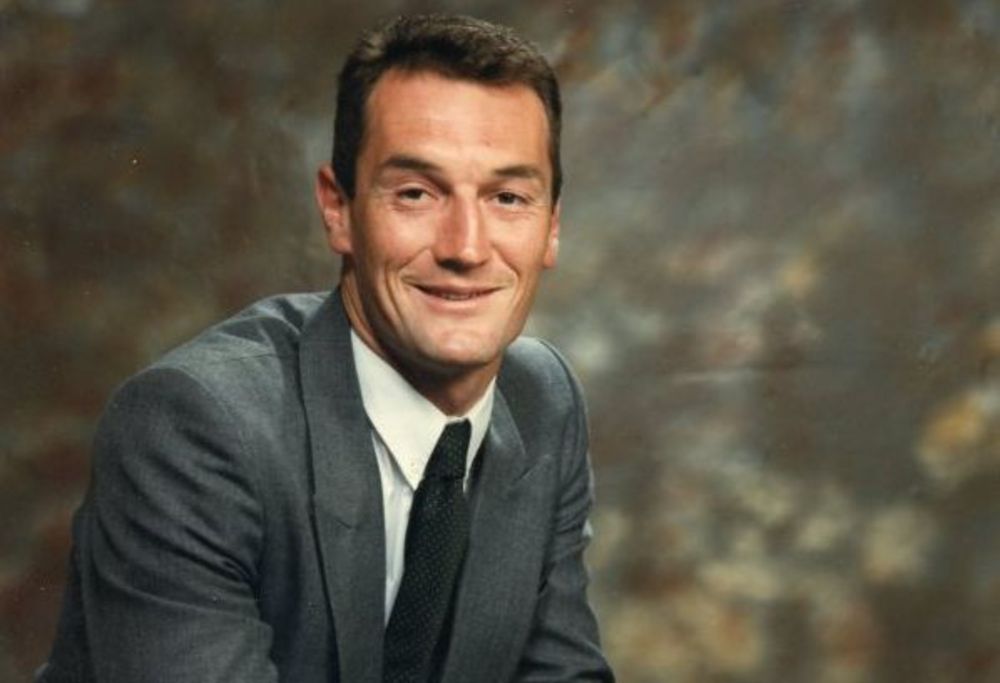
Steve Rutter
Rutter stood down in November 1993 and was replaced by Brian Hall for his second spell.
Rutter took up a similar role at Southern League club Trowbridge Town in June 1994 but had to retire from playing due to a persistent ankle injury.
He went on to work for the Football Association and UEFA as a coach educator.
He had spells as assistant manager for a number of clubs across Europe, including Greek Superleague outfit Panathinaikos and Dutch Eredivisie side Roda JC.
He briefly returned to Yeovil as head of academy before he became assistant boss to Nathan Jones at Luton Town in October 2018 after Paul Hart left.
In June 2019, Rutter left Luton to join Greek Super League club Atromitos as assistant coach.
Player-manager of Gloucester City in the Southern Division One from the summer of 1963 until May 1965 was Tommy Casey.
A product of Belfast junior football, Casey earned the nickname of `Cast Iron` as a player.
He began his senior football career as an amateur with Irish side Bangor.
Because of his amateur status, Bangor received no fee following his move to Leeds United in May 1949.
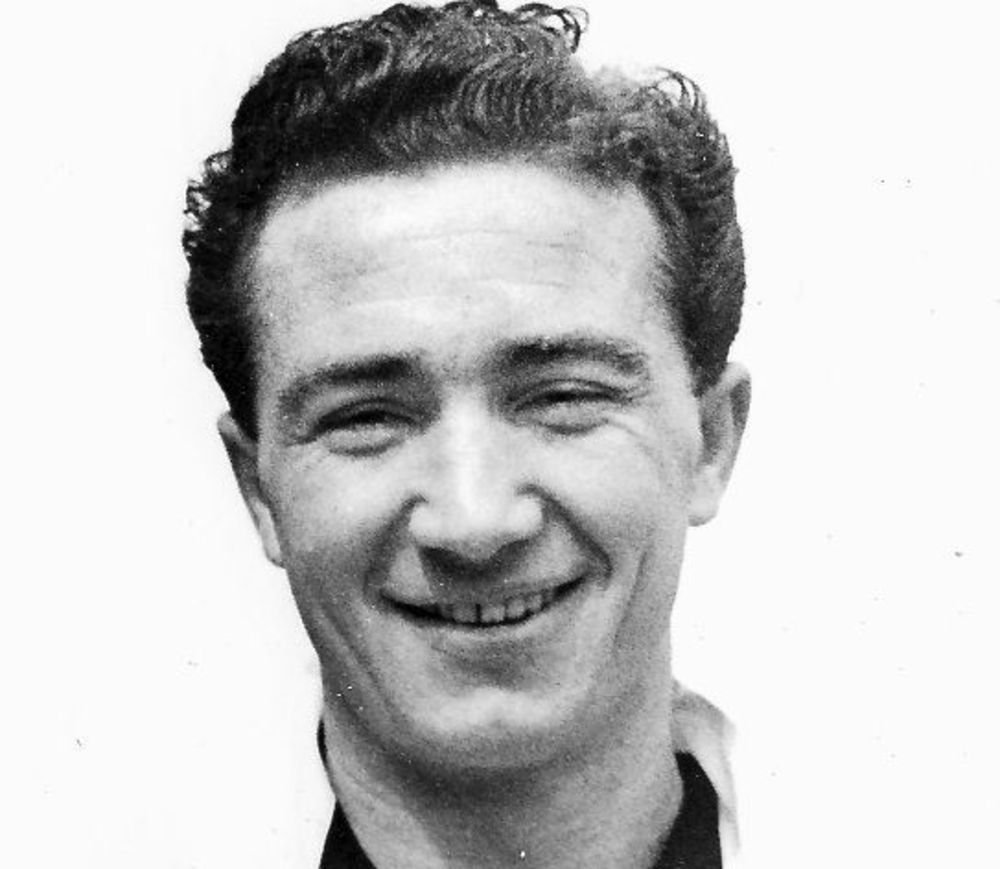
Tommy Casey
A year at Elland Road brought little success for the dynamic midfielder, and he decided to leave in August 1950, signing for Division Three (South) side Bournemouth.
Two seasons with Bournemouth allowed Casey to come to terms with life in English football, and in August 1952 he joined First Division Newcastle United for £7,000.
At St James’ Park Casey was never really a guaranteed starter, although he was always reliable when called upon.
Usually a tough-tackling left-half, he was also more than capable of playing in a creative role, evidenced by his selection when required in the forward line.
In 1955 Casey played in six of Newcastle’s matches as they won the FA Cup, but it was only after left-half rival Charlie Crowe strained angle ligaments the week before the final that Casey’s place in the team was assured.
Casey made his international debut for Northern Ireland against Wales in April 1955.
Over the next three years, he found himself in-and-out of the side, but he did play in three games during the successful 1958 World Cup qualifying campaign, scoring in the 3-0 win over Portugal at Windsor Park.
At the finals, he played twice, both times in the forward line, as Peter Doherty searched for a reliable goalscorer.
On returning from Sweden, Casey signed for Portsmouth for £8,500.
He maintained his place in Northern Ireland’s forward line for the first international of the season, wearing the number 9 shirt he scored in a 3-3 draw with England.
Eleven days later he played his final international, back as wing-half, as Northern Ireland were hammered 6-2 by Spain in Madrid.
After less than a season at Fratton Park, during which Portsmouth barely escaped relegation from the First Division, Casey was signed by Bristol City, then managed by Irish-boss Peter Doherty, in a £6,000 deal.
He was a popular figure at Ashton Gate, but could do little to save City from relegation to Division Three in 1960.
After four years Casey left Bristol City to become player-manager of Gloucester.
The Tigers finished 19th and then a much better 9th in his time in charge.
Casey later managed the Northern Ireland's youth team, was trainer/coach at Swansea Town, managed Welsh League side Ammanford Town, Irish outfit Distillery from January 1967 to October 1968, was Everton`s trainer-coach and briefly caretaker manager when Harry Catterick fell ill, chief scout at Coventry City, manager of Grimsby Town from February 1975 to November 1976, KR Reykjavik and Harstaad, before leaving the game altogether to work as a fishmonger in Portbury, near Bristol.
Casey remained in the Bristol-area until his death in a North Somerset nursing home in January 2009 at the age of 78.
Edwin Stein began his career as a junior with Luton Town and then played in the Athenian League for Edgware Town.
Spells with Isthmian League sides Harrow Borough and Dagenham followed before he joined Alliance Premier League outfit Barnet in the summer of 1982 for a fee of around £15,000.
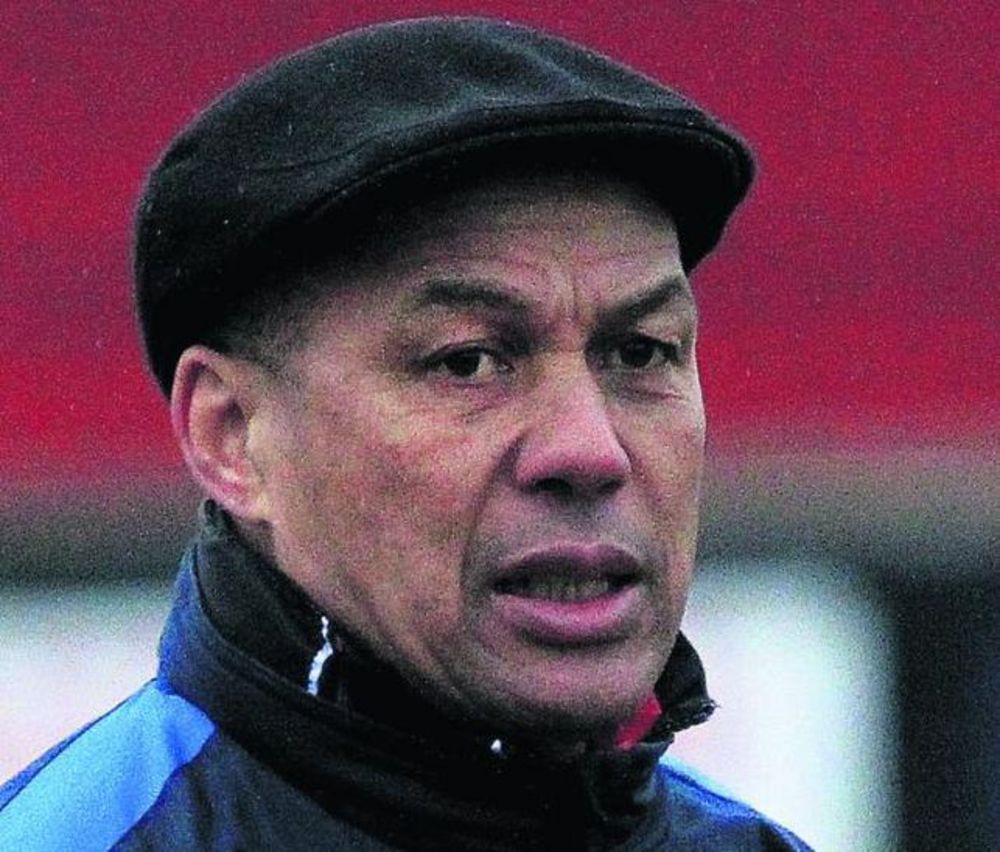
Edwin Stein
He spent over ten years at Underhill under Barry Fry, making around 500 appearances as a midfielder and playing in the Conference-winning season of 1990/91.
A spell as assistant manager at Barnet followed and when Fry left to manage Southend United towards the end of the 1992/93 season, Stein was appointed as manager for the final few games of that season but subsequently opted to follow Fry to Southend that summer as his assistant again.
When Fry moved to Birmingham City in December 1993, Stein followed him to St Andrews as his assistant.
After a couple of years as number two at former club Harrow, Stein was appointed as manager of the Isthmian Premier Division side in May 2000.
He spent three years in charge at Earlsmead before resigning in November 2003.
He spent time out setting up the `Ed Stein City Soccer Academy` in Milton Keynes before accepting the role as manager of Southern Premier Division side Banbury United in September 2012.
It wasn`t the most successful spell of his career, however, as the Puritans finished 16th and 19th before he resigned in August 2014.
Going back a bit, Harry Curtis is reckoned to be the greatest manager in the history of Brentford Football Club.
Managing the club for 23 years, he led the team from the third tier to the pinnacle of English football, as well as a Wembley Final in 1942.
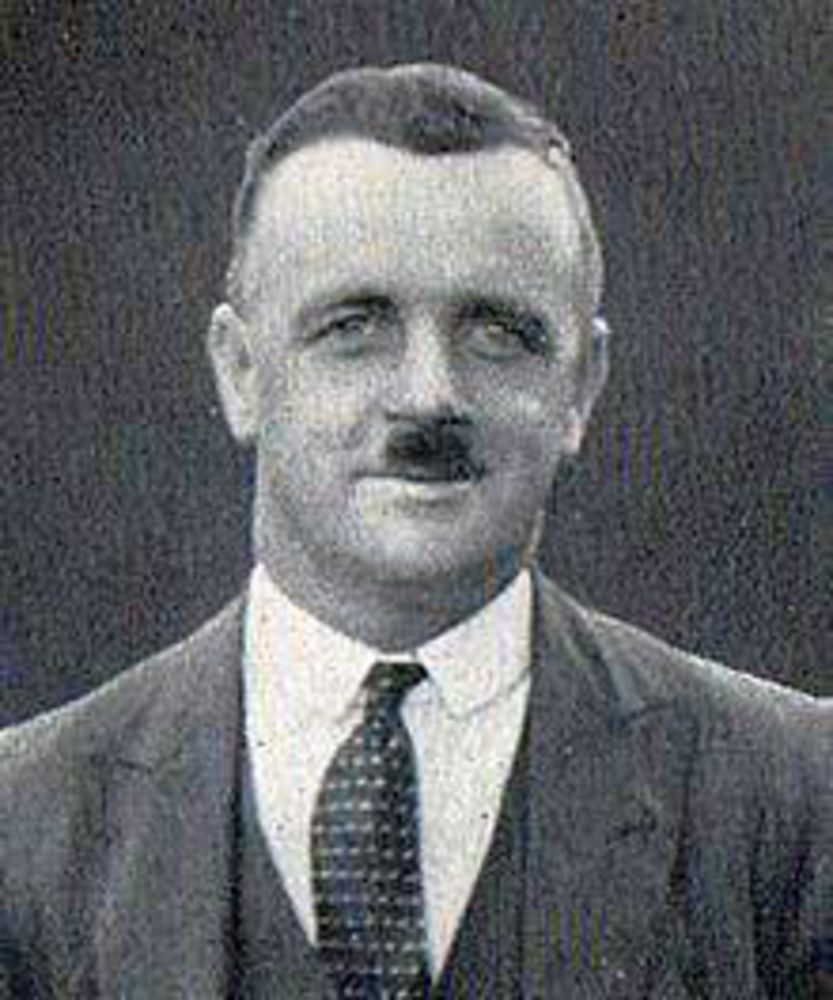
Harry Curtis
During Brentford’s golden pre-War era under Curtis, the Bees were one of the most highly respected clubs in the land.
However, it`s probably highly unlikely Curtis would obtain such an illustrious post these days with his background.
He never played professionally, indeed his first involvement in football was as secretary of local side Shernall United.
He later had brief spells as a player for Southern League Romford and Spartan Leaguers Walthamstow Grange.
After his retirement from playing, Curtis became a referee and was quickly added to the Southern League list of referees.
He was subsequently promoted onto the London Combination list and in 1918, he was promoted to the Football League list and retired from refereeing in 1923.
After hanging up his whistle, Curtis began his managerial career as secretary of amateur club Gnome Athletic in the London League.
The club, based in Walthamstow, East London, were originally the works team of Peter Hooker Limited, which manufactured engines in conjunction with the French Gnôme and Le Rhône Engine Company.
But by May 1923, he was in charge of Gillingham in the Third Division South.
Luck played a part in Harry’s entry into football management. Due to referee a Swansea Town (as they were known) match at The Vetch in 1923, he missed the 8.45am train to Swansea from Paddington due to a broken-down train on the underground.
He subsequently headed over to Gillingham to watch a match and enquired about the vacant managerial role. He was interviewed and then offered the post.
Over three years at Priestfield, Gillingham made steady progress, finishing 15th, 13th and 10th in the Third Division South.
In the second half of the 1925/26 season, Curtis went to see Brentford play Southend in a midweek game at Roots Hall and bumped into a Bees director and joked whether they needed a good manager.
Brentford took his proposition seriously and subsequently interviewed him in the Princess Royal public house - then the club’s headquarters - for the secretary/manager's post.
He was awarded the role on a twelve-month contract, with the task of lifting a club that had struggled since its election to the Football League to find any sort of form.
His first season at Griffin Park saw cup success, reaching the FA Cup Fifth Round for the first time in the club’s history.
A new stand was built in 1927, but an improvement in league form would elude him until 1929.
However, his success in the 1930s was amazing as he led Brentford out of the Third Division in 32/33, out of the Second Division two years later and into the First Division where they finished fifth twice and sixth before having a bit of a struggle in 38/39 before the Second World War brought an end to proceedings after just three games of the 39/40 campaign.
At the end of the war, Curtis continued in charge of the Bees but they were relegated after finishing second-from-bottom
Curtis` decision to retire in the summer of 1949 seemed to have been forced on him by the Brentford directors of the time as in February 1949, Brentford announced that forward Jackie Gibbons would be the new manager for the 1949/50 season onwards.
Curtis bowed out with a testimonial at Griffin Park in May 1949 after 23 years in charge.
After a few months' break from football, he took charge of Southern League Tonbridge in February 1950, his last managerial post.
He enjoyed a successful couple of years with Tonbridge but on November 5th, 1952, the club`s Board of Directors altered Curtis` team sheet to put a different player in for a game against Kettering Town and, feeling naturally undermined, he resigned and was replaced by Doug Hunt.
Curtis died in January 1966 in Southend, aged 76.
In days before foreign players became commonplace here, Mick Czuczman had one of the most unpronounceable names in the British football in the 1970s and 80s!
He started out on the books at Preston North End before signing for Grimsby Town in 1971.
He went on to become a firm favourite at Blundell Park, making over 120 appearances in their defence.
A move to neighbouring Scunthorpe United in 1976 saw him add 125 more games to his League tally.
In 1979, Czuczman moved to Stockport County for a season before heading over to the United States to join the lucrative North American Soccer League circus.
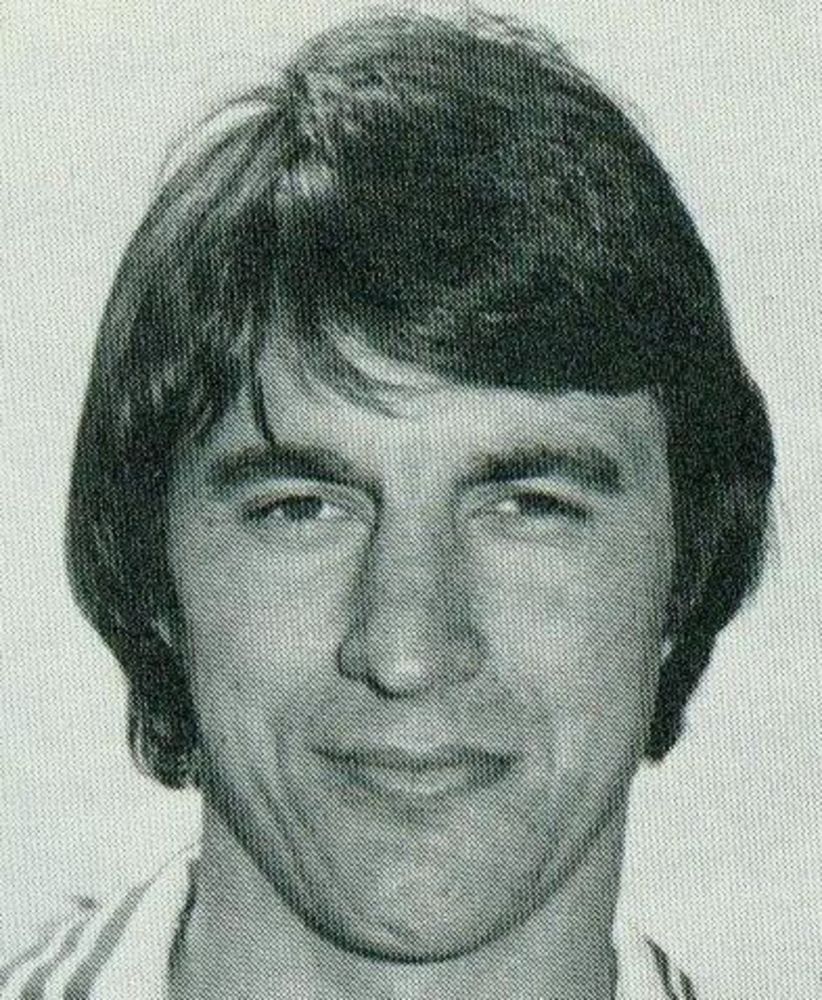
Mick Czuczman
Czuczman joined a San Jose Earthquakes side boasting the fading talents of George Best and former Manchester City and England star Colin Bell.
After 25 games for San Jose, he came back to England and re-joined Grimsby in 1981 before short spells with York City and Hull City brought his full-time playing career to an end in 1982.
He was appointed as player-manager of Skegness Town for their one season in the Northern Counties East League in 82/83 (they eventually returned in 2018) before they moved into the Lincolnshire League.
In 1984 he left `Skeggie` and signed for Alliance Premier League side Boston United but left at the end of the 84/85 season, only to re-sign in November 1985.
His spell in the Southern League was a relatively brief one.
He took over as player-manager of Midland Division side King`s Lynn in December 1987 but departed in April 1988 with the club finishing 13th out of 22 teams.
It was reckoned that >strong>Alf Sherwood was one full back who could tame Stanley Matthews.
The great Sir Stanley confessed that the Welshman was “the most difficult opponent he ever played against”.
Not a bad tribute for the former miner from Aberaman, who joined Cardiff City from his home-town club after winning Welsh Schoolboy honours at both cricket and football.
He played 110 times for Cardiff City during war time and then 244 League appearances until 1956.
At Ninian Park he won the Division Three South title in 1947 and then, after taking over as Cardiff captain, led the club back into the First Division by finishing as the runner-up in Division Two in 1952.
Cardiff manager Cyril Spiers signed him as a tenacious wing-half, but then moulded him into the perfect centre-back.
He also showed he could turn his hand to playing in goal in the pre-substitute days.
He took over in goal for both club and country and notably saved a penalty against Liverpool at Anfield in a 1-0 win that helped to condemn the Merseysiders to relegation from the First Division.
In 1956, Sherwood joined Third Division South side Newport County at the age of 33 and went on to play more than 200 League games for them, taking his total to over 550.
He also won 41 international caps for Wales, the last couple whilst with Newport.
In 1961, Sherwood took over as player-manager of Southern League Division One side Barry Town, but a long-term injury actually prevented him from taking the field for the Linnets.
Sherwood succeeded in keeping the cash-starved club in a mid-table position and led the team to the FA Cup First Round for only the fourth time in the club`s history against Queens Park Rangers in November 1961.
Crippling debts made worse by the frozen weather in early 1963 meant that Barry, struggling to compete in the league, were forced to release Sherwood as part of a cost-cutting exercise and his time at Barry was over.
He retired from football after that and died of a heart attack at Llantrisant & Pontyclun golf club in March 1990, aged 66.
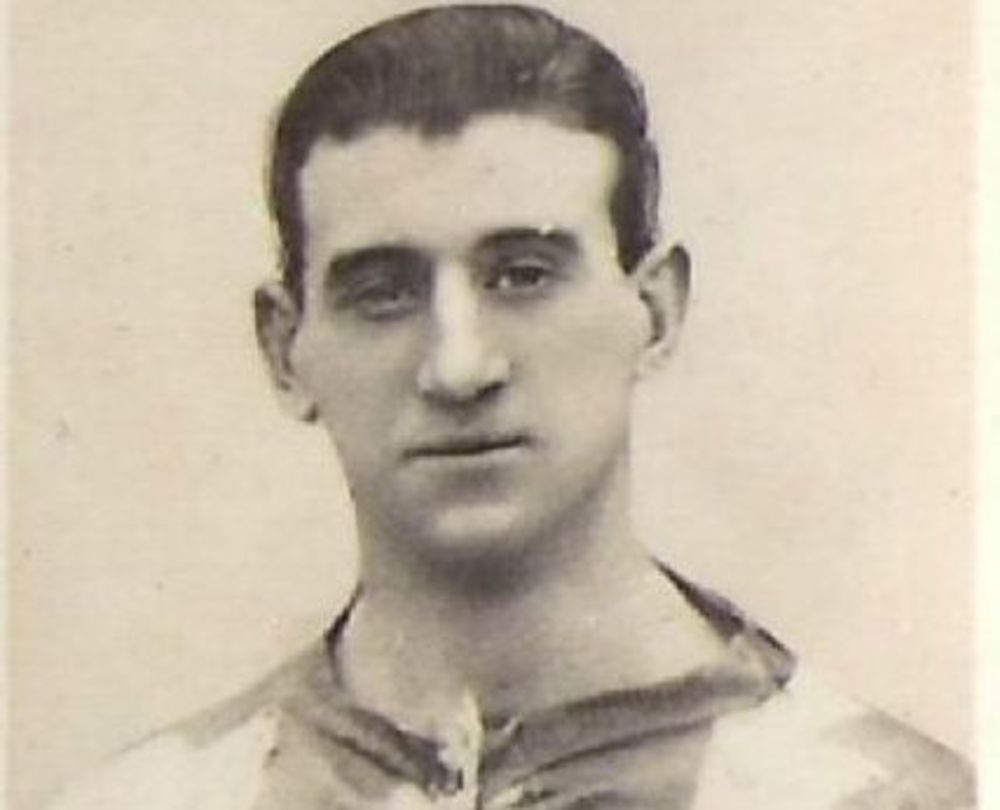
Bob Kelly
Sherwood succeeded another former international in the Barry Town managerial chair in England`s inside forward Bob Kelly.
In 1925, Sunderland broke the transfer record when they acquired Kelly from First Division rivals Burnley for £6,500.
Born in Lancashire, Kelly`s football talent saved him from a life in the mines.
He started his career playing for local team Ashton Central before moving to the Liverpool County League to represent Earlstown Rovers.
He soon impressed and at the age of 19, Burnley signed him up to his first professional contract but he only managed to play one season for the Clarets before the outbreak of the First World War led to the Football League being suspended.
Kelly represented the Royal Fleet Auxiliary during the war and returned to the pitch for Burnley in 1919, helping them to finish second in the First Division.
His form led to a call-up for England and he scored twice on his debut in a 5-4 victory over Scotland.
Burnley won the First Division title at a canter in 1921, which included an impressive run of 30 games undefeated.
Kelly spent the next four years at Turf Moor before his big move to Sunderland, leaving with a record of 88 goals in 277 appearances for the northerners.
Kelly’s time at Sunderland was not as successful as expected and after scoring just 11 goals in 50 appearances he was sold to Huddersfield Town.
His time at Leeds Road would have been a frustrating one, with them finishing second in the league in his first two seasons and losing two FA Cup finals during his stay.
While Kelly wasn’t a prolific scorer, his longevity during a time when players retired earlier than they do today was admirable.
He was 35 when he played his last game for England, scoring 7 goals in 14 appearances for his country, and represented Huddersfield up until 39 years of age.
Upon leaving Huddersfield, Kelly dropped down to the Second Division with Preston North End and helped them to promotion during the 1933/34 season.
Despite assisting their promotion Kelly, now at the ripe old age of 41 was deemed too old for the First Division.
He finished his playing career at Carlisle United.
He remained as Carlisle`s manager until he took over the seat at Stockport County in November 1936, a position held until his resignation in June 1938.
The Second World War put pay to his management career for several years but once it had ended, he was off to Portugal to manage Sporting Clube de Portugal.
He only spent one season in Portugal before taking in spells at FC St Gallen, SC Heerenveen, KFC (now AZ Alkmaar) and, from December 1960, Barry.
He died back home in Lancashire in October 1969, aged 75.

Most clubs are looking for volunteers. Find out more on the button below:
www.PitchingInVolunteers.co.ukAll the news and results in one place.
REGISTER